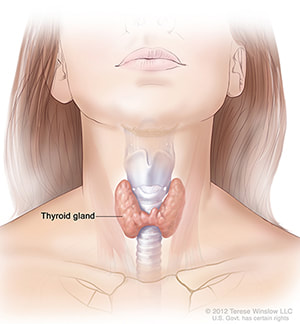|
|
 Those living with hypothyroidism may experience fatigue, depression, and constipation along with other symptoms that are more serious health concerns. That little gland in your neck plays important roles in how well, or not, your body works, luckily consuming certain foods may help to boost the effectiveness of your thyroid. The butterfly shaped gland produces hormones that help to regulate your mood, metabolism, energy levels, heart rate, blood pressure, body temperature, and energy levels. When the thyroid is not producing enough hormones hypothyroidism can occur when the body’s needs are not being adequately met. Hypothyroidism if left untreated can increase the risks for heart disease as a result of higher levels of LDL bad cholesterol. Medications can help to restore hormone levels and manage symptoms. But in addition to thyroid hormone replacement therapy you can boost thyroid function by consuming a well balanced diet that includes a lot of produce and protein according to Gregory B. Dodell, MD, who is an assistant clinical professor of medicine, endocrinology, diabetes, and bone disease at Mount Sinai in New York City. Omega-3s that are found in fish can help with combating inflammation and boosting immunity. Fatty fish like wild caught salmon, tuna, trout and sardines are good sources for omega-3 fatty acids. Omega-3s are known to decrease inflammation, help with immunity, and lower the risk for heart disease. Fish is also a good source of the nutrient selenium, which is most concentrated in the thyroid and helps decrease inflammation. Nuts are an excellent source of selenium which can help to boost thyroid function. These handy little snacks can be taken just about anywhere, but make sure to control portion size as nuts are high in fat. Hazelnuts, Brazil nuts, and macadamia nuts are particularly high in selenium according to a study published in the International Journal of Endocrinology. Also, keep in mind that walnuts can interfere with thyroid hormone absorption, meaning it is best to avoid consuming them at the same time you take any medications. Whole grains can help to ease the constipation which is a common symptom of hypothyroidism. Eat whole grains in cereals which are gluten free. Gluten free cereals to add into your diet are quinoa, sorghum, buckwheat, brown, red and black rice, amaranth, teff and oats. These are wonderful sources of nutrients and the ever important fiber that can help with bowel regularity. Fresh produce can help to manage weight gain; low calorie and high density fruits and vegetables are the mainstay of every successful weight loss program. Weight gain can be an early symptom of hypothyroidism. Including fresh fruits or veggies at every meal is typically recommended. Blueberries, cherries, green peppers, and sweet potatoes are loaded with antioxidants and other nutrients that have been shown to help lower the risks for heart disease. Those with hypothyroidism may do well to limit the intake of cruciferous veggies to 142g per day, as they can block the thyroid’s ability to absorb iodine which is essential to normal thyroid function. Iodine, which can be found in high concentrations within seaweed, is essential for normal thyroid function. "Iodine is the precursor for the production of thyroid hormone," as explained by Dr. Dodell. Seaweed, packaged as nori, wakame, and dulse, can be used in sushi, soups, and salads to offer the nutritional benefits of fiber, calcium, and vitamins A, B, C, E, and K. According to the American Thyroid Association it is possible to have too much iodine which can worsen the condition, but the likelihood of this is greater when taking iodine supplements, as such consult with your physician before increasing intake. Vitamin D, the gift of sunshine, is essential to a thyroid friendly diet. According to a study published in the Indian Journal of Endocrinology and Metabolism vitamin D supplements helped to improve TSH levels in those with hypothyroidism as well as thyroid antibodies in those with autoimmune thyroiditis. The best food sources of vitamin D are oily fish, including salmon, mackerel, and sardines. Other sources include egg yolks, red meat and liver. Hashimoto's can contribute to gut issues, including heartburn. Including probiotic-rich foods like yogurt in your diet may aid in balancing beneficial bacteria, potentially assisting in the regulation of gut problems associated with Hashimoto's. Thyroid issues can be linked to leaky gut, as increased intestinal permeability may allow harmful substances to enter the bloodstream, potentially triggering autoimmune responses that affect the thyroid. A food intolerance test can help you determine which foods your body reacts to. Beans may help to maintain energy levels for those that are feeling drained because they contain protein, antioxidants, and complex carbohydrates, along with an assortment of vitamins and minerals. As an added plus beans are a rich source of fiber that can help with constipation. Beans are available in an assortment of types which can be used as the base for entrees, side dishes, soup, salads, or stews. It may be best to limit how much you eat as excess fiber can interfere with hypothyroidism treatments, guidelines recommend 20-35 grams of fiber a day. As always it is best to consult with your physician or a certified health professional before beginning any new regime to avoid any possibility of unwanted complications, and to work out a plan that is best suited for your individual needs and requirements.
0 Comments
Leave a Reply. |
AuthorBarbara is a qualified nutritionist offering Health, Nutrition & Lifestyle Counseling. She gives Healthy weight loss advice and promotes the Mediterranean diet. She is the author of the Med Life Diet - creating healthy lifestyle habits and attitudes for life ! Archives
April 2024
|
 RSS Feed
RSS Feed
